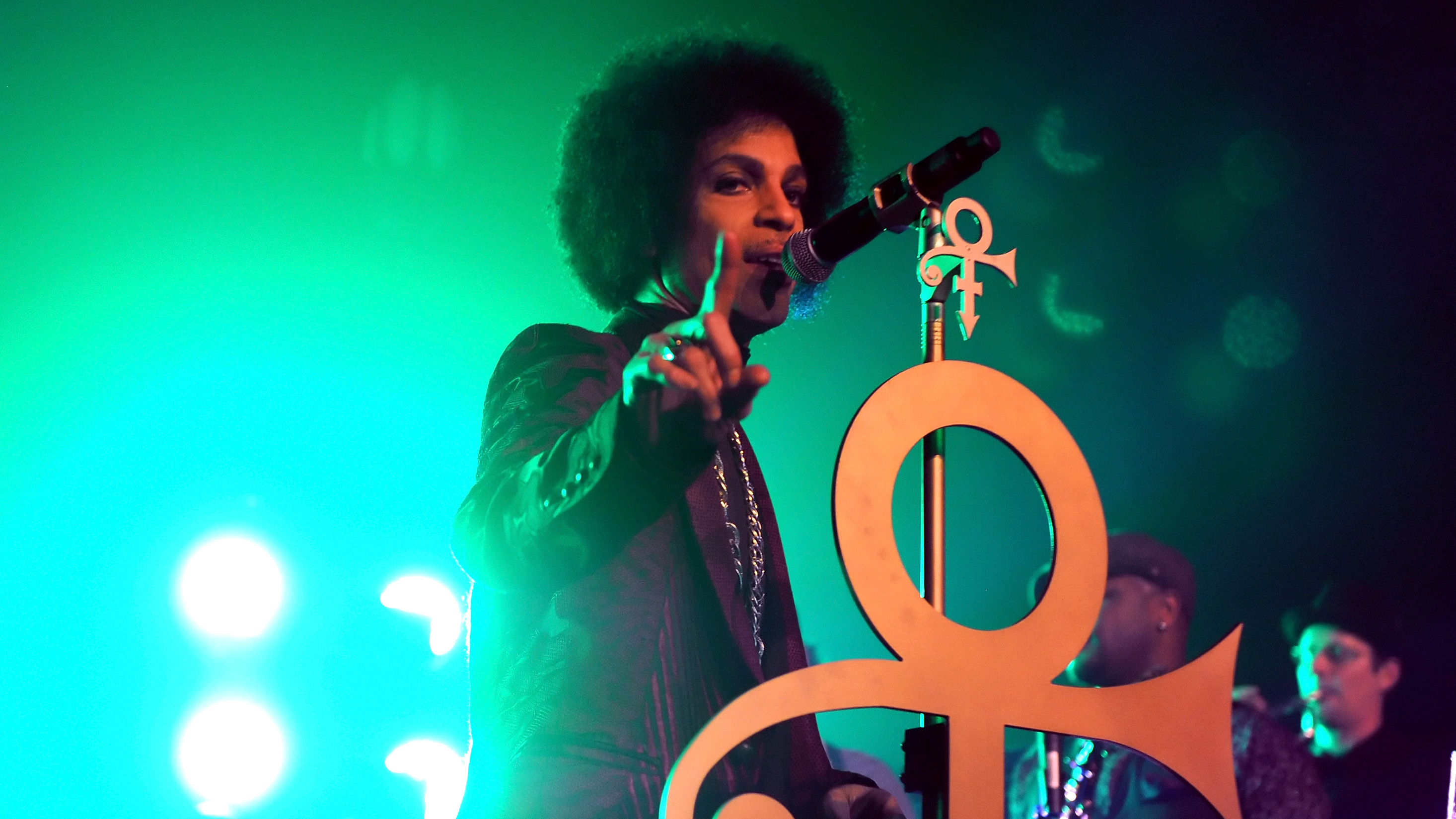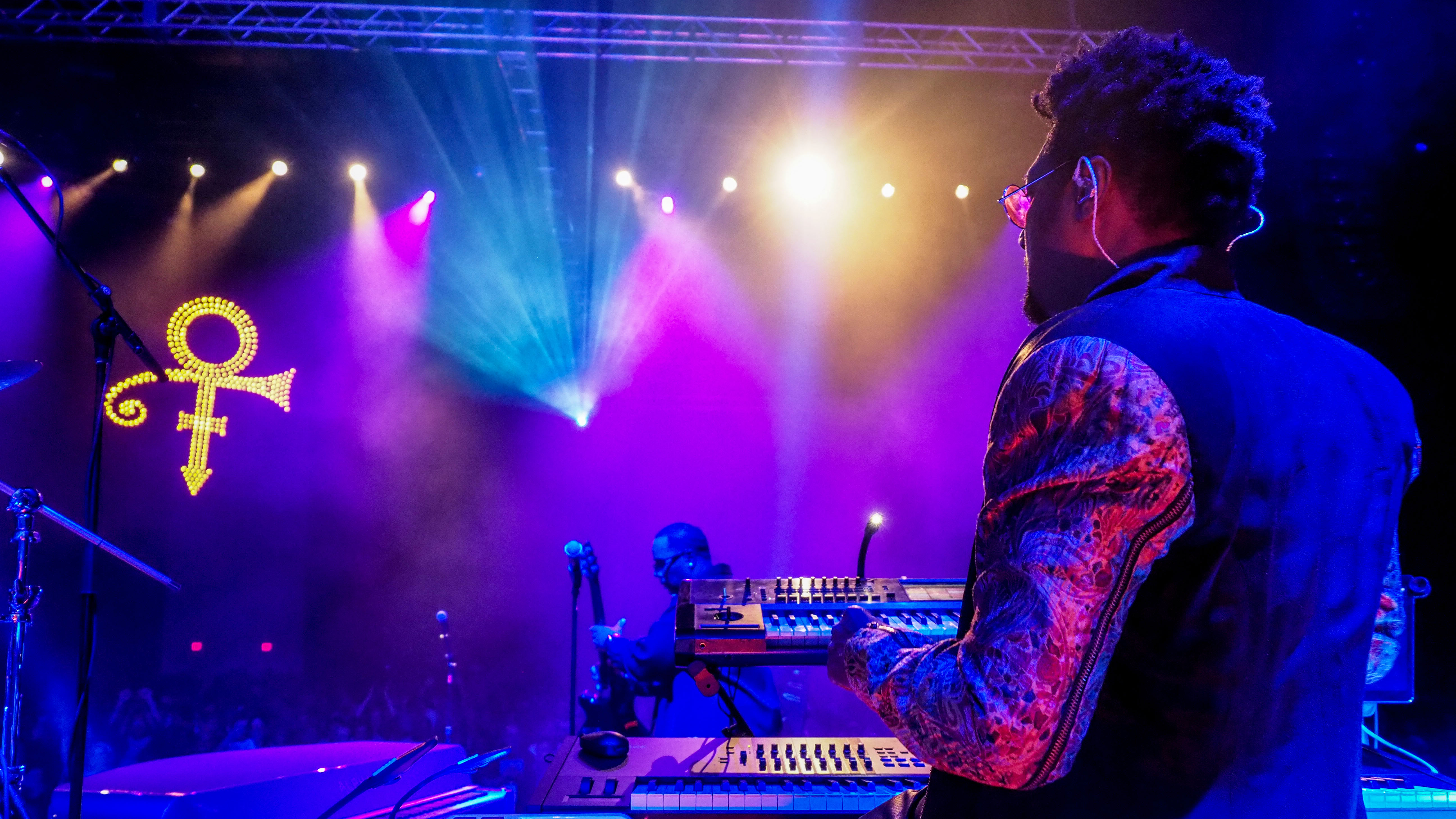
Musician Cobi recently had acclaimed keyboardist Morris Hayes as a livestream interview guest on his YouTube channel, and the three-hours+ chat covers some incredible memories of his esteemed career so far, including the experience of his 20 years working with Prince as Musical Director and band member – including the extremely high standards the late legend had when it came to recording and the people he hired on the road.
There's no doubt Hayes had immense respect for his former boss. But he's candid about the situations he saw in his two decades with Prince. "There were about four jobs with Prince that I wouldn't want for my worst energy," Hayes reflected on rumours the late legend was especially hard on front-of-house hirings. "And one of them is sound guy, one of them is security – they have no life because he's up all the time and if he's up, they'd be up. So we have the sound guy, the security and we have the accountants. I would not want to be one of the accountants and I wouldn't want to be one of the lawyers. Those jobs, like the engineers… he'd go through those people. Sound people, we just went through, man. And it's because Prince knew enough to really be dangerous – and he knew too much. So he would micromanage those things.
"We had the best engineers. I remember I went to Paramount [Theatre, New York venue] at the Madison Square Garden. We had a run at the Garden and Sade came in. I was on my day off so a few of us went to check Sade out. And man, she was killing. The sound was like listening to an album on a regular CD. It sounded like that. And Prince didn't come, so the next day with Prince I was like, 'Bro, you should have checked Sade out. It was crazy. The sound was like the best sound I've ever heard in my life.' He said, 'Did you get his number?'
Prince will get involved and he'll push him out the way and he'll do it
Hayes did. He'd already approached Sade's engineer that night. "And I ruined that guy – I messed him up," confesses the musician. "His fate was he joined us. Prince made him an offer, he left Sade and then Prince wanted him to invent a sound system." He was like, 'Dude, I don't do all of that, man'. It was like the rest of them – it always starts off cool and then it ends badly. We've had the best sound[men] in the game. Because we'd hear somebody and say, 'This guy's good' but then Prince will get involved and he'll push him out the way and he'll do it.
"We had Rihanna's guy towards the end when I was leaving in 2012," remembers Hayes. "And it was really funny because he's a big brother, man. And there was a difference between the white dudes and the brothers we were working with. A lot of white dudes were scared of Prince, they wouldn't say nothing. This brother was like a big monster - a big old dude. And Prince didn't care. He'd move him out the way and say 'I'm doing it, I've got it.' And man, we spent about three hours sound-checking and tweaking with Prince doing this and then while he was on the stage, then Prince would come off the stage for another hour or two and do that. I remember that dude after going through all the stuff for about four hours, he looked at the console and he said to Prince, 'So now we're back at the place where we started – we're back at square one after all of that.' And man, Prince was hard, he went, 'Did I ask you?'
"But the dude was not to be trifled with – he got fired not long after that because something went down with the sound."
Eventually, even Hayes fell foul of Prince's endless quest for perfectionism after he found himself in an absurd situation at an arena show.
Want all the hottest music and gear news, reviews, deals, features and more, direct to your inbox? Sign up here.
"That's actually why I left… my last arena show was in Chicago. My last time playing with him was in Los Angeles but after that. That show was at the United Center where the Bulls played basketball and the sound was atrocious."
Prince ended up putting Hayes and his keyboards behind the soundboard. "I'm out about a hundred feet away from the stage," he remembered. I have about a 45, 60 millisecond delay between the music and what I'm seeing onstage. I had in-ears but you have one of two problems, and I had [drummer] Questlove ask me this, he said, 'Morris, how are you doing this? There's a 45-millisecond delay between what you're playing and what I'm seeing.' I was like, 'Bro I don't even know, it's bananas.' Either I had to play without in-ears and listen to the sound system like the people were listening to it and then play off so it matched what the people were hearing, or if I'm playing with the in-ears, don't look at the drummer. Because if I looked at Blackwell [John Blackwell Jr, drums] I'm messing up because where his drums were hitting were off-time where the sound actually hits me. It's like watching one of those [badly-dubbed] Chinese karate movies. It was off. You can't watch him and play in time."
Hayes resolved to take the root of playing ahead of the beat with his in-ears out to account for the sound delay that can occur when music is travelling in large venues.
Sometimes the sound challenges would besest multiple gigs. "We had one whole tour when the sound was crazy and Prince was walking off the stage. We went offstage and stayed gone for like 30 minutes. It was crazy. We were in Zurich or somewhere like that and we did the first song and it was hideous. We worked on that shit forever. We walked out there and did that first song… and Prince said, 'Everybody off the stage. Everybody come off the stage.' And we're in an arena and these people are like, What the…? We just went in the dressing room and I was like, oh man what are we doing?! [Prince said], 'We're not playing nothing when it sounds like this. I'm not playing under these conditions. Period. And you got and talk to somebody.'
"I'm not the sound dude, I'm the MD," remembers Hayes. The show had started and Hayes had to find the promoter to try and figure the situation out. Almost thirty minutes went by. "It makes my stomach hurt now just thinking about it," grimaces Hayes. Prince ended up leading the band back onstage and told the crowd the soundman was "killing your show". There would be other casualties at the mixing desk too.

"We were doing an outdoor festival," recalls Hayes. "And he just tore into the [sound guy] and that dude was from France. And a note to anybody out there, those aren't the ones you want to go into because they'll strike on your ass and be like, 'I'm out'. And that dude quit on the spot."
Prince looks over at him like, 'I've got your number – you're done, you're so done'
Hayes also tells Cobi about the time one of the crew, a guitar tech Hayes calls Fred, attempted to exact some kind of revenge on Prince at Wembley Arena.
"That was the worst, man," says Hayes. "He had been having some problems with Fred the whole tour… Fred knew this was one of the last shows we were doing and Fred knew that he was done. He knew he was gonna get fired after it was over and done. So he was gonna leave with a little parting salvo and give Prince a guitar that was way out of tune, and it happens to be in the section of the show when Prince does a solo guitar thing for about five or ten minutes by himself. So we just sit and chill and the spotlight goes on Prince centre stage. There's 10 or 12 thousand people here and he does his thing where he goes through a few of his songs on his guitar alone.
"Fred gives him this guitar, he's out in the middle of the stage, and he's used to [it] being in tune and ready to go. He turns this on and he plays the first chord and [makes out-of-tune clanging noise]. We all looked at each other - 'Oh… ouch!'"
What Prince did next isn't actually that revelatory from a practical standpoint – especially for a musician who grew up before the concept of tuner pedals existed. But it's the way he shrugged off 'Fred's' attempted sabotage that impressed Hayes so much.
"Prince looks over at him like, 'I've got your number – you're done, you're so done'" recounts Hayes. "Just with the look of death – laserbeam eyes. [Prince] then preceded to do some of the craziest shit I've ever seen. He starts one note at a time, Prince [didn't] have perfect pitch but perfect relative pitch.
"He tuned one note and because he was only playing with himself all he had to do was tune the guitar to itself. He wasn't going to be like, 'Excuse me while I get another guitar.' It's like, bro the show must go on and I've got to make a show out of this because it's going to look like a big mistake and I'm gonna look stupid."
Once the tuning was sorted, Prince proceeded to do what he did best.
"The solo this dude ripped into was like… I looked at guitar player Levi [Seacer Jr] and he was on the side of the stage and we just looked at each other like, 'Damn, did you see what this joker just did?' That was the craziest shit I've ever seen, this dude just murderized – he murderized that solo and let that guy know, you can't stop my show. You can't ruin me. He was not to be trifled with.
"I saw him do that piece in the show every night and he went way beyond to just let that guy know, you can't mess with me, bro. You can't mess up my show. You can't do nothing. But you're gonna get your ass beat and you're going home. And they kicked him off the lot. It was bananas, man. I've never seen anything like that and it was just one of those many moments I realised I was dealing with a cat that was a little bit beyond a mere mortal."
Check out Cobi's full interview with Morris Hayes above and subscribe to his YouTube Channel and Instagram. For more info on Hayes visit morrishayes.com

Rob is the Reviews Editor for GuitarWorld.com and MusicRadar guitars, so spends most of his waking hours (and beyond) thinking about and trying the latest gear while making sure our reviews team is giving you thorough and honest tests of it. He's worked for guitar mags and sites as a writer and editor for nearly 20 years but still winces at the thought of restringing anything with a Floyd Rose.


